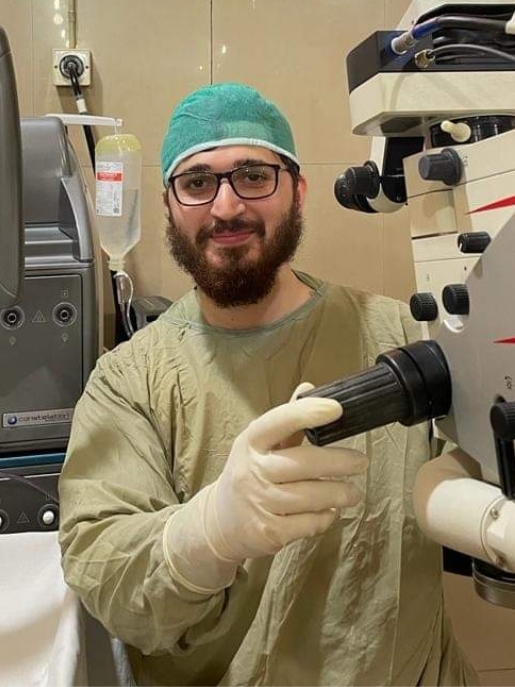Retinal Detachment
Lahore Laser Eye Center is renowned as the premier eye center in Lahore, Pakistan, offering exceptional eye care services. With a team of highly skilled ophthalmologists and state-of-the-art technology, they offer the best possible care for patients seeking Retinal Detachment Surgery.
Retinal Detachment
Retinal detachment is a serious eye condition that requires prompt attention and treatment. It occurs when the retina, a thin layer of tissue located at the back of the eye, detaches from its normal position, leading to potential vision loss. This article aims to provide a comprehensive overview of retinal detachment, including its causes, symptoms, risk factors, and available treatment options.
Causes of Retinal Detachment
Retinal detachment can be caused by several factors, with the most common being aging and changes in the vitreous, the gel-like substance that fills the eye. As a person gets older, the vitreous can shrink and pull away from the retina, potentially causing it to detach. Other causes may include eye trauma, severe nearsightedness (myopia), family history of retinal detachment, and certain medical conditions like diabetes.
Recognizing the Symptoms
Recognizing the early symptoms of retinal detachment is crucial for seeking timely medical attention. Individuals experiencing sudden flashes of light, an increase in the number of floaters (dark spots or lines in the vision), or a shadow or curtain-like effect in their field of vision should seek immediate evaluation by an eye care professional. These symptoms may indicate the onset of retinal detachment, and early intervention can significantly improve the chances of successful treatment.

Risk Factors and Prevention
Certain risk factors can increase the likelihood of developing retinal detachment. As mentioned earlier, age and nearsightedness are significant risk factors. Additionally, a history of retinal detachment in one eye, a family history of the condition, and a history of eye surgery or eye trauma can also raise the risk. While some risk factors are beyond an individual’s control, regular eye exams, especially for those with higher risk, can aid in early detection and potentially prevent vision loss.
Treatment Options
Timely treatment is essential to prevent permanent vision loss due to retinal detachment. The type of treatment recommended depends on the severity and location of the detachment. In some cases, a laser or freezing treatment (cryopexy) can be used to repair small tears or holes in the retina. For more severe cases, surgical procedures such as scleral buckling, pneumatic retinopexy, or vitrectomy may be necessary to reattach the retina properly.
Recovery and Prognosis
The success of retinal detachment treatment varies depending on factors such as the extent of the detachment and how quickly treatment is sought. While some individuals may recover their vision fully after treatment, others may experience partial vision restoration or, in rare cases, permanent vision loss. Post-treatment follow-up visits with an eye specialist are crucial to monitor progress and address any concerns that may arise during the recovery period.
Conclusion
Retinal detachment is a serious eye condition that demands immediate attention to prevent vision loss. Understanding its causes, recognizing the symptoms, and being aware of the associated risk factors can empower individuals to seek timely medical intervention. Regular eye exams and early treatment are essential for the successful management of retinal detachment, highlighting the importance of proactive eye care for everyone, especially those with higher risk factors.
Dr. Hamza Ali Tayyab, an esteemed eye surgeon, is recognized for his expertise and exceptional patient care at Doctors Hospital and Medical Center in Lahore. With extensive experience in the field, Dr. Tayyab is known for his precision, skill, and commitment to providing the best possible outcomes for his patients. If you are seeking top-notch retinal detachment treatment, don’t hesitate to book an appointment with Dr. Hamza Ali Tayyab and benefit from his unparalleled expertise.
Call us for an appointment
0326-3777752
Feel free to contact us.
info@lahorelasereyecenter.com
Reach to us via our location
View Map
